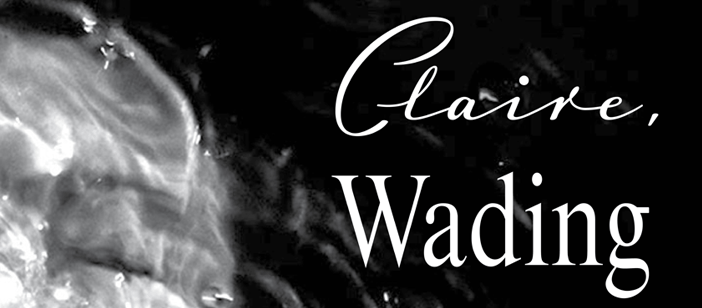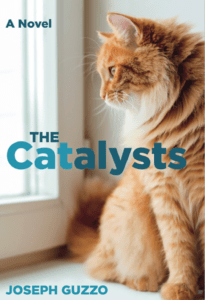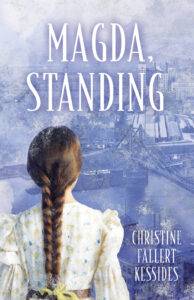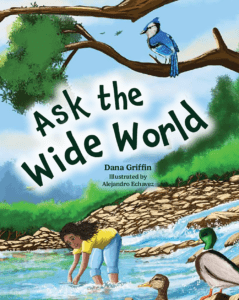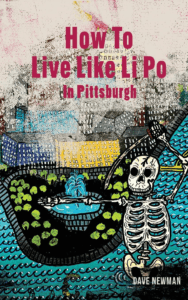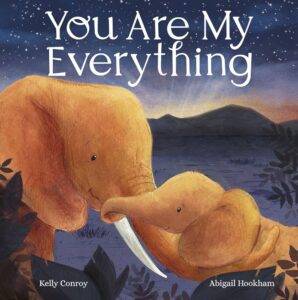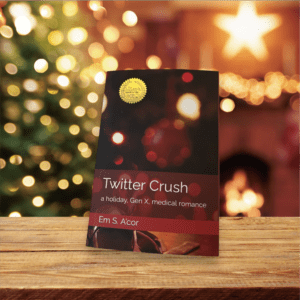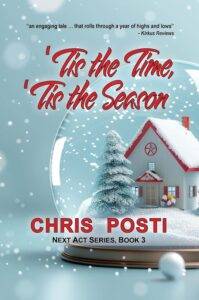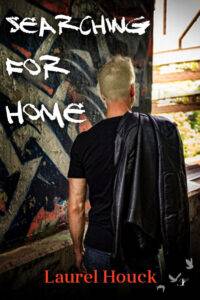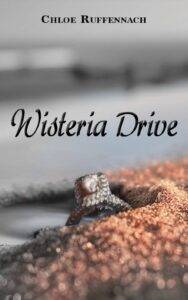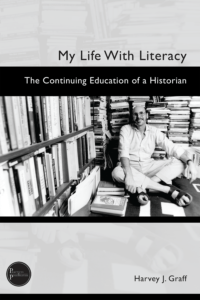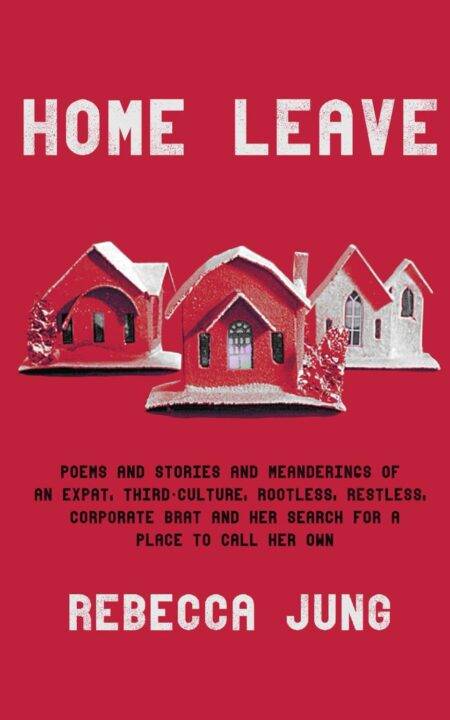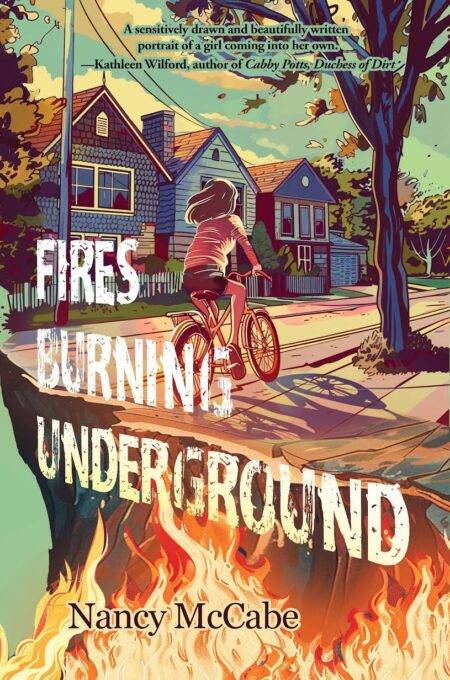From the publisher: “Author of the award-winning Prague Summer returns with a new story collection that explores American lives both at home and abroad in the age of anxiety—a world gone sour with regret, where only the small intimacies that sometimes blossom between people offer any kind of hope or possibility for redemption.
In the title story, a seemingly idyllic European vacation ends abruptly when a woman goes missing, leaving her lover to come to terms with the disappointingly minor role he’s played in her life. In ‘Salt of the Earth,’ the story of a Manhattan restaurant is told through the lives of its employees, reminding us that turmoil can be assuaged one savory bite at a time, and that some spaces, through the time we spend there, can become sacred. In ‘Gepetto’s Workshop,’ an American expatriate returns to the United States to help the daughter of his former lover open a business and, in the process, comes to terms with his own emotional poverty. And ‘In Costume’ follows the life of a Jane Austen reenactor whose sudden connection with Hollywood royalty opens up the possibility of a bigger career—but at what price?
Jeffrey Condran’s Claire, Wading Into the Danube By Night is an intense and sophisticated collection of stories in which characters travel the world in search of truths that aren’t always comfortable, and companionship that doesn’t always make sense.”
About the Author: Jeffrey Condran is the author of the story collection, A Fingerprint Repeated (Press 53). His debut novel, Prague Summer (Counterpoint), received a 2015 Independent Publisher Book Award Silver Medal. His fiction has appeared in journals such as The Kenyon Review, The Missouri Review, and Epoch, and has been awarded the The Missouri Review‘s 2010 William Peden Prize and Pushcart Prize nominations. He is an Assistant Professor of Creative Writing at the University of Arkansas at Little Rock and co-founder/publisher of the independent literary press, Braddock Avenue Books.
“Jeffrey Condran is a writer of great insight and consummate skill. He has a light touch, and at first you might imagine that his characters are (as the collection’s title would have it) merely wading into their experiences. Early in each of these stories, though, there comes a moment when the shelf drops suddenly away, and the truth of a life comes rushing over you, and with it the pleasure of total immersion. For me this sensation was addictive.” —KEVIN BROCKMEIER, author of The Illuminations and A Few Seconds of Radiant Filmstrip
“With elegant prose and astonishing insight, the stories in Claire, Wading into the Danube by Night vividly depict landscapes both literal and psychic, mining the rich domains of nostalgia and hope and resignation. Jeffrey Condran has a jeweler’s eye for the beauty and flaw in each of us, an empathetic acuity he deploys perfectly in this intercontinental collection.” —MICHAEL KARDOS, author of Bluff
“Having already been a fan of Condran’s writing I was expecting to enjoy Claire, Wading Into the Danube By Night; however, I was not prepared to be floored the way I was. These stories carry a sophistication and elegance in both subject matter and style, an intelligence that pairs perfectly with the beauty of the sentences. A palpable sense of life being not only lived but savored and deeply experienced runs through the book. I was greedy with it, skipping appointments and obligations, so that I could spend more time with its characters and their predicaments. To finish felt like arriving at the end of a brief but intense love.” —ANDREW MALAN MILWARD, author of I Was a Revolutionary
“Seductive reveries on love and art are impossible to resist in Jeffrey Condran’s elegant story collection, Claire, Wading Into the Danube By Night. Here are the well-read and well-traveled, intellects and writers, famous actors and aspirants, for all of whom love has proven problematic. Romance is a melancholy business; like a mist, it rises—even in the most alluring settings, yet in Condran’s stylish company we are enthralled.” —CHRISTINE SCHUTT, National Book Award and Pulitzer Prize Finalist, author of Pure Hollywood
In Costume
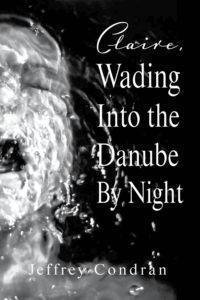 A woman wearing a pale yellow Regency dress—not an original, but a lovely imitation— sat smoking a cigarette among the wreckage of the tables and chairs, her careful hair beginning to fall apart. Ava was not unaware of the way she looked, her self- consciousness and ability to see herself as a cinematographer might was legendary among her friends. It was a point of affection, a reason to say, oh Ava, with a smile in your voice. If she were to begin to cry, Ava thought, it might be worth a photograph. As it was, she laughed a little, still stunned by the unexpected success of the evening. All around her were its signs: the empty champagne bottles, dessert plates stained with chocolate and strawberry, cloth napkins twisted like found origami. And of course there had been the surprise appearance of Edward Emanuel.
A woman wearing a pale yellow Regency dress—not an original, but a lovely imitation— sat smoking a cigarette among the wreckage of the tables and chairs, her careful hair beginning to fall apart. Ava was not unaware of the way she looked, her self- consciousness and ability to see herself as a cinematographer might was legendary among her friends. It was a point of affection, a reason to say, oh Ava, with a smile in your voice. If she were to begin to cry, Ava thought, it might be worth a photograph. As it was, she laughed a little, still stunned by the unexpected success of the evening. All around her were its signs: the empty champagne bottles, dessert plates stained with chocolate and strawberry, cloth napkins twisted like found origami. And of course there had been the surprise appearance of Edward Emanuel.
The Centre had kept its doors open after hours for the event. The upstairs reception room where lectures about Austen’s life were sometimes given had been cleared for the round tables and place settings. There had been white cloths, candles. A trio had been hired to play music. Vivian was known to be a wonderful fundraiser for the museum—she and her husband, Roger, though he seemed to spend most of his time shaking the occasional hand and smiling absently. No, these events belonged to Vivian. She had a way of moving around the room and creating an immediate intimacy, grazing an elbow or a shoulder with her fingertips, modulating her voice for each guest’s imagined needs, almost but not quite touching them for a check right there in the middle of things.
“It’s why they’ve been invited,” Vivian reminded her, murmuring through clenched teeth, an ever-smiling mouth. “Subtlety is lost on most people.”
Ava loved her complex snobbery, loved, most days, being the woman’s protégé. She was taking in everything. All the little touches that had transformed this dusty meeting room into an occasion. Most notable were the items that Vivian had brought in from other rooms in the Centre. There was the mannequin dressed in a blue gown and bonnet, the porcelain tea service, a framed drawing of the famous Crescent. Of course, the real attraction was the reenactors like Ava herself, dressed like a page out of Northanger Abbey, out of Persuasion.
One of the reenactors hadn’t shown, Jeremy, who carried off mutton-chop sideburns in a way that was oddly sexy. Vivian had been beside herself for a little while because of this defection—that was her word, she took these things very personally—but only the staff would know they were a boy short. By the time the sun was beginning to set and the candles were lit, the wall sconces turned on to create a warm, low light, all had been forgotten. Roger and a friend were discussing the demise of Manchester United and the impact of the Brussels bombings on the stock market. Vivian was heard to be rationalizing Jeremy’s absence.
“The reenactors are really for the women,” she was saying. “It’s their nostalgia that’s at stake. For that, the dresses are what’s important.”
“Nostalgia?” Ava wasn’t sure how she felt about the word.
Vivian rolled her eyes, but then smiled. She failed, however, to clarify why she’d said “nostalgia” like an obscenity. The tone of voice was in Ava’s mind now and she couldn’t let it go, though the food was a nice distraction. Roast beef au jus. New potatoes. Asparagus in butter. Soon the musicians had hit their stride and everyone was seated. A waiter was pouring Ava her second glass of champagne when something in the room shifted.
“Ladies and gentlemen,” Vivian was suddenly saying. The musicians stopped mid-note. “Please welcome Edward Emanuel to our party.”
The actor was a tall man in corduroy trousers, a black shirt with a black tie, and a jacket of an almost indescribable color—perhaps platinum. His once-blond hair was artfully tossled, and on his face he wore a pair of tortoiseshell eyeglasses. There was exhaustion there, like gravity.
“I’m incredibly grateful to the Jane Austen Centre for their invitation.” He turned to look at Vivian, whose hand—both hands, actually—were resting on his arm. He paused, smiling. One beat, two. “What’s a guy have to do to get a drink around here?” The crowd laughed appreciatively at this commonplace and soon a champagne flute appeared.
“May we bring you something to eat?” Vivian said. She smiled at him, but flickered a quick look at Ava.
“That dessert looks awfully good. Something happens when you turn sixty, dessert becomes irresistible.”
When Ava set the dessert plate in front of him—she’d brought over two slices, the berries slick with a sugary glaze—he smiled gratefully. The smile revealed deeply scored wrinkles. It was a face that had spent much time in the sun. Yet there was still some of the virility that in his youth, on the screen, had poured off of him in waves. Like a heat.
“I was sorry to hear about your friend,” Roger said. “Thank you.”
“Who do you mean, Roger?” Vivian said. “What friend?”
“Robert March. He wrote Love—40—it was a tennis movie. We met on the set and have been friends for more than forty years. Had been friends, I should say.”
Edward Emanuel took another large forkful of cheesecake.
“I’m so sorry,” Vivian said.
“He was a remarkable man. He knew books, of course, but food too. And drink. He had one dry martini every day.”
“That’s a lot of gin,” Vivian said.
“Well, he lived to be 90.”
One of the guests approached Vivian and Roger wanting to say hello, feeling the need for a bit of the personal touch before handing over their money—and quite probably drawn by the pull of the actor sitting so close by. While they were distracted, Emanuel leaned close to Ava.
“How am I doing?” he said. His voice was now quite different, sober, all the joshing animation of the last few moments completely gone. It was a low voice, deep, and displaying a touch of anxiety. The real voice, perhaps, of Edward Emanuel.
“You’ve been wonderful, Mr. Emanuel,” Ava said. “It was a charming entrance.”
He nodded and took a sip of champagne.
“And I’m sorry about your friend. You clearly loved him.”
“Yes. Bob taught me about the role of storytellers—to engage and provoke, to inspire and, ultimately, connect us.” He started to laugh.
“What?” Vivian said, her attention returned to the table and Edward Emanuel.
“Have I missed something funny?”
“Oh, I caught myself delivering one of my own quotes.” Then to Ava, “You know how many times I’ve said that line? My God, don’t ever become an actor.”
The table broke into laughter, but there must have been an expression on Ava’s face.
“Of course you are an actor, aren’t you?” Emanuel said. “Just look at how lovely you are in your dress. Clearly one of the Bennett sisters. The important question is which one.”
Later, Ava was helping Vivian bring a round of coffees to the table, her mind still listening for Emanuel’s voice.
“How did you get him here tonight?” Ava asked Vivian.
“I called his agent. I thought, one can but ask.”
A version of the Regency dancing made famous in the Austen films had always been part of the plan for the evening. With Jeremy missing, one of the female reenactors had to sit out, but Ava took her place across from her partner and soon lost herself in the complicated steps and gestures that passed couples down the line in a whirl of skirts and wide smiles.
Occasionally, however, Ava glanced back to the table to find Edward Emanuel. At this distance he was perhaps only a jet-lagged traveler in need of an omelet and a Bloody Mary to lift the sag of the shoulders and the spirit. One noticed the constant self- possession, the control exerted over every gesture—the raising of a glass, a smile, the dubious arch of an eyebrow—which might have been acting, but might also be the genuine expression of long habit. Grace. Ava realized that she wouldn’t at all mind if he looked up just now to watch her dancing, and then berated herself for always needing to have someone looking, admiring and approving. Wasn’t nearly the entire room already watching?
By the time she returned to the table her upper lip was beaded with perspiration that she had to wipe away with the back of her hand and cover with a smile. “Ah my God, it’s so hot up there.”
“You were perfect,” Emanuel said. “They’ve been giving me lessons on set. I find the dances unbelievably difficult. Apparently there’s a scene where they want Admiral Croft to trot out his wife along with all the other ladies.”
He was talking again in his actor’s voice—no, a star’s—an insider buying an expensive lunch at the old Polo Lounge, pitching his project, as if the buoyancy of his personality alone could win over the pretty young woman in her yellow dress, the snobbish crone and her self-important husband, the whole party. He reached out and covered Ava’s hand on the table.
“I didn’t mean to offend you earlier.” He gave a little squeeze, his skin pleasantly warm. “I hope you’ll forgive me.”
She smiled. “There’s nothing to forgive.”
Emanuel smiled, too, and then turned her hand over to examine the palm. The entire table was watching them.
“Your future is all here, you know? At least that’s what my old grandmother believed. She also believed that it’s best not to look. Don’t tell them”—he glanced theatrically at Vivian and Roger—“they still believe they control their fates.”
“Now Ava will remember this forever,” Vivian said, “the day that Edward Emanuel didn’t read her palm.”
“Well, then,” he said, “my work here is done.” He stood and buttoned his jacket, laughing away their pleas for him to stay.
When it was clear that he was determined to go, it seemed half the party was prepared to see him to the door. Vivian’s voice rose shrill and triumphant above the crowd’s. He was welcome with them anytime. Don’t hesitate to let them know if he needed anything—absolutely anything—while he was in Bath. They would rent a copy of Love—40 right away. She couldn’t wait!
At last he was released. He started to the right and then remembered he wanted left. Down the hill and generally in the direction of the Roman baths. To begin with his walk was stiff, but soon he strode along confidently, disappearing into the English night.
“He’s headed back to his hotel, I’d imagine,” Roger said.
“Someone should drive him.”
“He doesn’t need to be driven if he doesn’t want to be. Ava, what do you think?” “I don’t think he needs anybody’s help.”
“Possibly you’re right,” Vivian said.
Later, after the musicians had gone home and the caterers were packing up, someone turned on a radio. The women all began to dance—it was a strange sight, even to their own eyes. Jane Austen and Jay-Z. To everyone’s surprise, Vivian joined them. And then Roger. Their movements were awkward, but they put their hearts into it.
“You were brilliant once again,” Roger said—he’d had a moment to make a quick tally of the donations.
Vivian twirled away from her husband, wiggling her fingers vivaciously in the air between them.
Later still, Vivian put her arm around Ava.
“You know, Edward Emanuel really took a liking to you.”
“Oh, he was just being polite. I imagine he has a lot of practice at being polite.”
The Centre cleaned, the costumes put away, it was time to say their goodnights. The air outside was beautiful. Ava took a deep breath and walked up the hill to the Crescent. There was one garden apartment that could always be counted on to have the curtains open and every light burning. Ava paused to look inside, she simply couldn’t help herself tonight. The living room seemed to her a stage set. Hardwood floors, a white mantle, and three girls—sisters, clearly—lying on the floor watching television. They all had high ponytails that bobbed and fluttered with constant movement. Six feet waving in the air behind them like the rudder of a ship. She had thought they were darling, eight, nine, ten years old, gazing into the screen and dreaming.
This excerpt from Claire, Wading Into the Danube by Night is published here courtesy of the author and should not be reproduced without permission.


